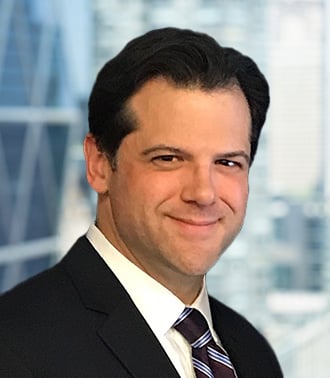By Any Other Name: Money-Laundering Enforcement May Shift Towards U.S. Attorneys' Offices
The first day of the ABA’s 40th White Collar Crime Conference brought us a panel on what to expect for money-laundering enforcement and asset forfeiture under the new Trump administration. The panel had a lot of material to discuss, particularly in the wake of what people are starting to call the “total elimination” memorandum” — in which the U.S. Department of Justice (DOJ) announced (1) an increased focus from DOJ, and specifically the Money-Laundering and Asset Recovery Section (MLARS), on cartels and transnational criminal organizations; and (2) the disbanding of MLARS’ highly-publicized KleptoCapture Task Force (which prominently seized “super-yachts” owned by Russian oligarchs in connection with Ukraine sanctions).
We had expected to ask an MLARS representative directly about these new policies. But all DOJ representatives withdrew from the conference. With no DOJ speaker, the panelists tried to fill the void by forecasting how they expected the “total elimination” policies to play out in practice in the money-laundering space.
Several themes emerged:
- What is a “Transnational Criminal Organization” (TCO)? Although “cartels” are understood to refer to narcotrafficking organizations, what the new administration considers to be a “transnational criminal organization” is not entirely clear yet.
- Pause on international asset seizures. In line with the predicted disbanding of the KleptoCapture Task Force, the panelists expressed that they did not expect to see MLARS engage in major asset seizures in the near future. The panel discussed reports that the Trump administration may order MLARS to return all the assets seized through the KleptoCapture Task Force, including “super-yachts” seized from their Russian owners. Meanwhile, just as the panel was discussing seized “super-yachts,” a series of luxurious boats — yachts, if not super-yachts — with perfect timing sailed past the conference room windows down the Miami river, offering an ironic counter-visual to the discussion.
- Increased independence and activity from U.S. Attorneys' Offices in prosecuting the underlying criminal conduct. While the “total elimination” memorandum directed MLARS to focus on cartels and TCOs, it also provided more leeway to individual U.S. Attorneys' Offices to undertake enforcement efforts, including in the enforcement of the Foreign Corrupt Practice Act (FCPA) (note: the “total elimination” memorandum preceded President Trump’s executive order pausing FCPA enforcement for six months). The panel seized on the idea that U.S. Attorneys' Offices may undertake enforcement efforts independently from Main Justice, by resorting to bread and butter charges like mail and wire fraud (which do not require Main Justice’s involvement). In other words, rather than leading the charge, MLARS and other Main Justice units may have to watch U.S. Attorneys' Offices take on a more significant and independent role.
Final takeaways: money-laundering is still a crime, and prosecutions will continue — but possibly by different folks and using different names. (As a side note, watch as state attorney generals also may jump in on the action, in addition to individual U.S. Attorneys’ Offices.)
More to come here from Miami! Continue to follow Enforcement Edge for updates.
© Arnold & Porter Kaye Scholer LLP 2025 All Rights Reserved. This Blog post is intended to be a general summary of the law and does not constitute legal advice. You should consult with counsel to determine applicable legal requirements in a specific fact situation.



